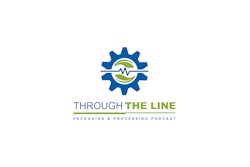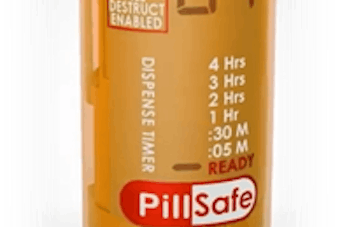1. Drug safety questioned
There were reports of actual fraud in clinical data that fed into a new drug approval application. Concern with over-the-counter drugs lead to a new law on over-the-counter drugs and dietary supplements, requiring them to label their products with contact information to report possible injuries or illness and to keep records of the adverse reactions. On another matter, the FDA's system for tracking adverse reactions of drugs on the market have been criticized and updates have been delayed. Congress might require new FDA action.
2. FDA leadership controversies
FDA Commissioner Andrew von Eschenbach was the subject of controversy before ever being confirmed as FDA Commissioner. The FDA seems more of a political football than ever. A strong and capable FDA commissioner can help the agency resist politics, give the agency a morale boost, and provide substantive direction in pursuing various priorities.
3. Knock! Knock! Who's there? FDA Inspector—it's no joke
The FDA inspection process is best understood as a step in the sequence of FDA enforcement. Enforcement actions—warning letters leading to seizures, injunctions or criminal prosecutions, or in limited cases civil money penalties or disgorgement of profits—are the agency's ultimate power over regulated industry. Every company should have a plan in place and keep personnel trained to know what to do before an FDA inspection begins.
4. Recent priorities in inspections
Counterfeiting of drugs in particular is still an emerging hazard. Packaging technologies including but not limited to RFID are central to countering it. Medical device inspections focus on the implementation of "quality systems" to enhance control of manufacturing practices.
5. cGMPs—What a concept
It is useful to remember that current Good Manufacturing Practices for drugs, medical devices or biological products share basic concepts. The principle is that you establish controls and parameters for each important step in the manufacturing, processing, packaging and labeling processes, from beginning to end.
6. The "strict liability criminal statute"
The best way to get the attention of the most senior management at your company is to remind them that violations of the Federal Food, Drug and Cosmetic Act canny potential criminal penalties—jail and fines—for responsible individuals, even in the absence of intent to violate the law or knowledge of the situation that led to the violation.
7. Labeling of prescription drugs
Last year, the FDA changed the content and format of prescribing information for drugs and biological products. The new formal features sections containing highlights of prescribing information and a table of contents. Required information must appear in a specified sequence, and graphic specifications are provided. The new design is intended to reduce adverse events by making it easier for healthcare professionals to use information in the prescribing information and reduce medication errors.
8. Labeling of OTC drugs
The FDA changed the format for labeling of OTC products a few years ago. The result is not too different from the Nutrition Facts panel on a food label: Standard formatting, lots of white space, and simplified wordings. In a word: user-friendly. Because OTC products are chosen and taken by consumers independently, safety is especially dependent on proper labeling. A new law requires OTC drugs and dietary supplements to be labeled with contact information for reporting adverse reactions, and requires keeping records of such reports. It goes into effect in December.
9. On the horizon: Legal changes?
In addition to those already noted, Congress is debating a new law that would provide for generic versions of biological products.
10. Who says the FDA needs more money? Everyone!
A unique coalition came together last year to lobby for more FDA funding to let it do its job. The Coalition for a Stronger FDA includes industry groups, former government officials, plus consumer advocates. They all want the FDA to have more money so it can do its many jobs correctly. Overall, increased attention and possibly increased resources for the FDA means this will continue to be an active area, possibly continually changing, requiring regulated companies to put more resources of their own into preparation, planning and compliance activities.
Eric Greenberg is an attorney with a practice concentrated in Food and Drug Law and commercial litigation. He is the principal attorney of Eric F. Greenberg, P.C, a law firm based in Chicago with clients from around the U.S. and the world.
By Eric F. Greenberg, Attorney at Law
There were reports of actual fraud in clinical data that fed into a new drug approval application. Concern with over-the-counter drugs lead to a new law on over-the-counter drugs and dietary supplements, requiring them to label their products with contact information to report possible injuries or illness and to keep records of the adverse reactions. On another matter, the FDA's system for tracking adverse reactions of drugs on the market have been criticized and updates have been delayed. Congress might require new FDA action.
2. FDA leadership controversies
FDA Commissioner Andrew von Eschenbach was the subject of controversy before ever being confirmed as FDA Commissioner. The FDA seems more of a political football than ever. A strong and capable FDA commissioner can help the agency resist politics, give the agency a morale boost, and provide substantive direction in pursuing various priorities.
3. Knock! Knock! Who's there? FDA Inspector—it's no joke
The FDA inspection process is best understood as a step in the sequence of FDA enforcement. Enforcement actions—warning letters leading to seizures, injunctions or criminal prosecutions, or in limited cases civil money penalties or disgorgement of profits—are the agency's ultimate power over regulated industry. Every company should have a plan in place and keep personnel trained to know what to do before an FDA inspection begins.
4. Recent priorities in inspections
Counterfeiting of drugs in particular is still an emerging hazard. Packaging technologies including but not limited to RFID are central to countering it. Medical device inspections focus on the implementation of "quality systems" to enhance control of manufacturing practices.
5. cGMPs—What a concept
It is useful to remember that current Good Manufacturing Practices for drugs, medical devices or biological products share basic concepts. The principle is that you establish controls and parameters for each important step in the manufacturing, processing, packaging and labeling processes, from beginning to end.
6. The "strict liability criminal statute"
The best way to get the attention of the most senior management at your company is to remind them that violations of the Federal Food, Drug and Cosmetic Act canny potential criminal penalties—jail and fines—for responsible individuals, even in the absence of intent to violate the law or knowledge of the situation that led to the violation.
7. Labeling of prescription drugs
Last year, the FDA changed the content and format of prescribing information for drugs and biological products. The new formal features sections containing highlights of prescribing information and a table of contents. Required information must appear in a specified sequence, and graphic specifications are provided. The new design is intended to reduce adverse events by making it easier for healthcare professionals to use information in the prescribing information and reduce medication errors.
8. Labeling of OTC drugs
The FDA changed the format for labeling of OTC products a few years ago. The result is not too different from the Nutrition Facts panel on a food label: Standard formatting, lots of white space, and simplified wordings. In a word: user-friendly. Because OTC products are chosen and taken by consumers independently, safety is especially dependent on proper labeling. A new law requires OTC drugs and dietary supplements to be labeled with contact information for reporting adverse reactions, and requires keeping records of such reports. It goes into effect in December.
9. On the horizon: Legal changes?
In addition to those already noted, Congress is debating a new law that would provide for generic versions of biological products.
10. Who says the FDA needs more money? Everyone!
A unique coalition came together last year to lobby for more FDA funding to let it do its job. The Coalition for a Stronger FDA includes industry groups, former government officials, plus consumer advocates. They all want the FDA to have more money so it can do its many jobs correctly. Overall, increased attention and possibly increased resources for the FDA means this will continue to be an active area, possibly continually changing, requiring regulated companies to put more resources of their own into preparation, planning and compliance activities.
Eric Greenberg is an attorney with a practice concentrated in Food and Drug Law and commercial litigation. He is the principal attorney of Eric F. Greenberg, P.C, a law firm based in Chicago with clients from around the U.S. and the world.
By Eric F. Greenberg, Attorney at Law


















